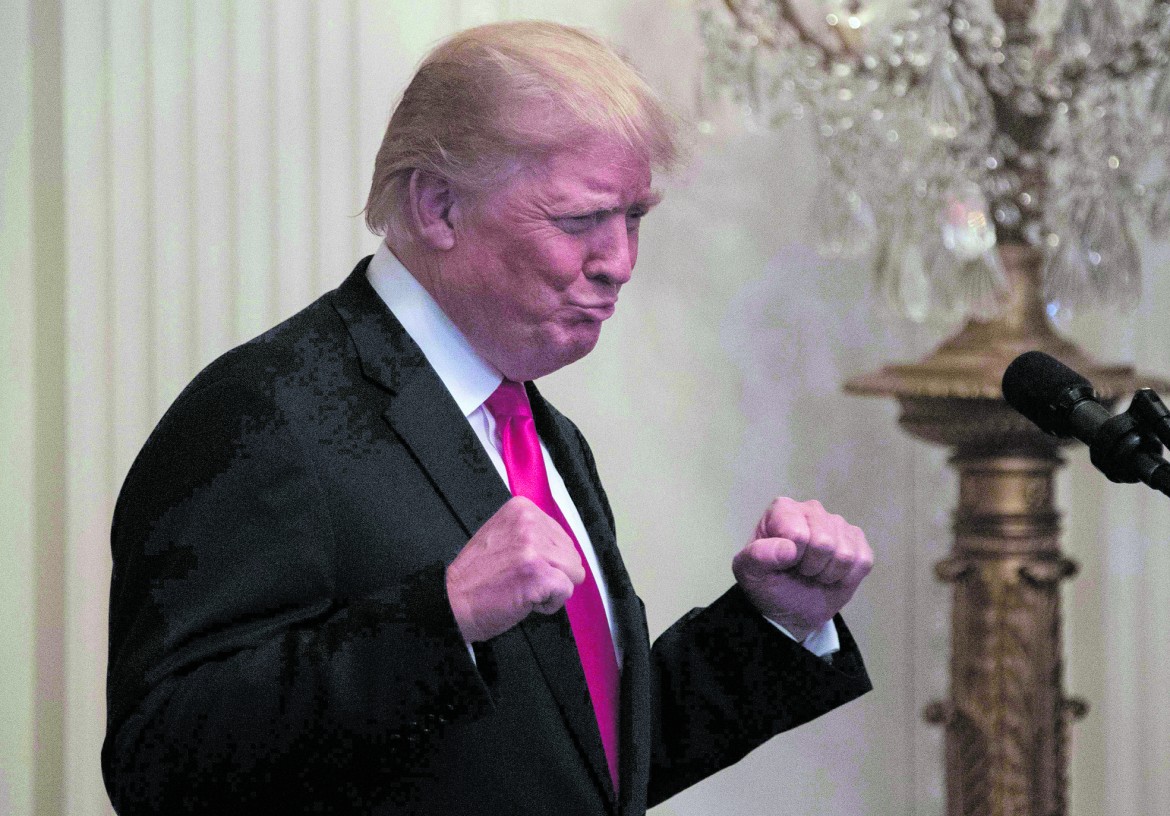Analysis
Mueller report finds Trump was made in America
Trump has gone on the counterattack, threatening investigations against those who initiated the Russiagate investigation and turning his so-called ‘exoneration’ into an argument for his re-election in 2020.

It looks like Donald Trump is a wholly genuine American phenomenon after all. This, above all, is the most striking takeaway from the outcome of the probe conducted by Robert Mueller, a quiet and industrious investigation that lasted 675 days and interviewed nearly 500 witnesses.
This finding stunned many who believed that Trump was just a puppet in the hands of a hostile foreign power—indeed, in those of America’s number one enemy: an agent of Moscow that somehow made it to the White House. Many had hopes that the investigation by the special prosecutor—seen as a savior to the homeland—would end up unmasking the president as a foreign agent and leading him out of the Oval Office in handcuffs.
Seeing Trump as an “enemy actor” coming from outside would make him easier to understand. It is, indeed, easier to consider him a foreign intrusion into a system that—according to the dominant view in the US—has always worked just fine (even when, to give one example, it unlawfully elected a president who unlawfully started a war in the Middle East that still hasn’t ended).
Ever since he was elected—and even before that—the Trump phenomenon has been seen as an anomaly, a painful detour from a fundamentally virtuous path, an inexplicable veering off course, if not simply the outcome of a long-term devious plot by the Russians. The New Yorker’s Masha Gessen notes that this theory “held the appeal of a secret answer to our catastrophe, one that would make the unimaginable suddenly explicable.”
Now, having gone all in on predicting Trump’s removal via judicial process by unmasking him as an agent in the service of Putin is proving to be a self-inflicted wound: “The dream of a sudden, magic resolution to the Trump tragedy is dead,” Gessen writes.
However, the Russiagate story is unlikely to end with Attorney General Barr’s delivery of his summary of the Mueller report to the heads of the Judiciary Committees of the House and the Senate. The House, ruled by a Democratic majority, has already requested the disclosure of the whole report—and, as The New York Times underlines, it is the House that “has the power under the Constitution to decide for itself whether the president’s actions constituted ‘high crimes and misdemeanors’ that justify impeachment.”
There are also other ongoing judicial investigations, both at the state and federal level, on the dealings of the Trump Organization and the Trump charitable foundation, on Trump’s violation of the emoluments clause and on his misuse of campaign funds. Furthermore, many questions raised by the Manafort case, the firing of former FBI chief James Comey, and the cases involving Trump’s former attorney Michael Cohen still need to be answered.
It should also be stressed that only a summary of the report by Trump’s handpicked Attorney General William Barr has been made public. It does contain the key sentence that Trump has seized on: “The Special Counsel’s investigation did not find that the Trump campaign or anyone associated with it conspired or coordinated with Russia in its efforts to influence the 2016 presidential election.”
These summarizing words are serving as the pretext for Trump to go on the counterattack, threatening investigations against those who initiated the Russiagate investigation, and, most importantly, giving him an opportunity to make what he calls his “exoneration” into an argument for his re-election in 2020. Going forward, he will be even more emboldened in his denunciations of a “witch hunt” against him orchestrated by the liberals and the media, already a very engaging topic for his fans at the endless rallies of his permanent electoral campaign.
While the Democrats seem caught off guard by the result of the Mueller investigation and haven’t put up a unified front, with House Speaker Nancy Pelosi apparently ruling out the possibility of starting an impeachment procedure against Trump, the media are the ones hardest hit. Contempt and hatred toward the establishment and progressive media—The New York Times, The Washington Post, Newsweek, The New Yorker, CNN, MSNBC—is the most defining feature of this presidency. And, while the feelings are mutual, there is a certain interest—indeed, a financial one—on the part of the media in this dynamic continuing.
The crisis of the old media was unexpectedly mitigated by the emergence on the scene of a president who is a media personality, and who, as in a funhouse mirror, has been magnified into a larger-than-life figure, something he benefits from in order to rally his base, for whom he has been skillfully playing the role of the heroic victim of the hated elites. At the same time, he produces an endless stream of ratings-generating material every day for the newspapers and talk shows.
The media filled up the void left behind by the lack of a political direction on the part of the Democrats, who were stunned by Hillary Clinton’s unexpected defeat and took a long time to regain their composure. By winning control of the House last November, the Democrats have made a surprising recovery, also thanks to new candidates pushed up by a remarkable level of grassroots mobilization.
The most important thing is for this activist energy to be used to build up a political alternative to Trump ahead of the 2020 presidential elections, with no more illusions of a judicial deus ex machina—a prospect which mostly had the effect of selling more newspapers, rather than earning actual votes for the Democrats.
Originally published at https://ilmanifesto.it/no-trump-non-e-un-corpo-estraneo-al-sistema/ on 2019-03-26
